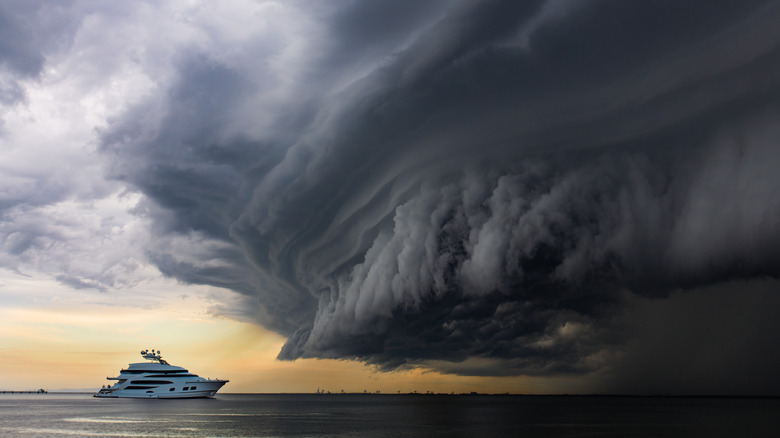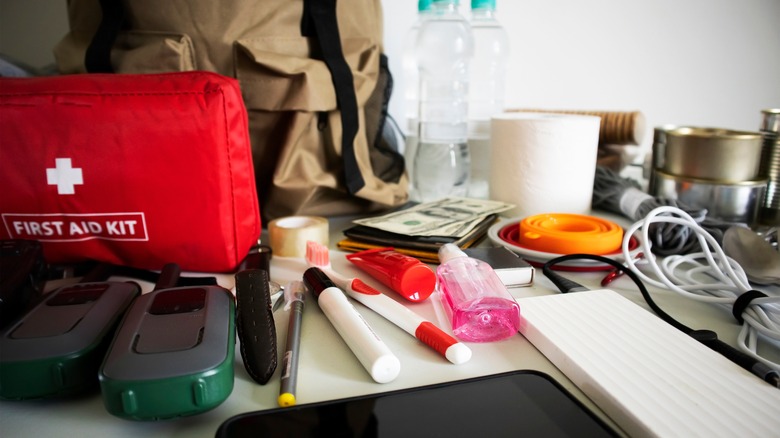The Best Ways To Prepare For Travel During Hurricane Season
Unfortunately for travelers and locals alike, some of the best vacation destinations are often hit by hurricanes. While that doesn't necessarily mean you have to cancel your trip, you should be cautious when you make plans that take you into the danger zone during hurricane season. You could absolutely reschedule for a time when storms are less likely, but if you are going to risk it, it's important to make a plan in advance for what you and those you're traveling with will do if you find yourself in the path of an oncoming storm. That can include everything from getting travel insurance and packing everything you might need in case of a disaster to knowing how you would evacuate.
If you're heading to areas where there may be storms, like Key West during hurricane season, you should definitely stay alert. While you're away, you should be cautious and keep your eyes on the weather forecast to see if there seem to be any dangerous storms brewing during your trip. While the local news at your destination should keep you informed about any upcoming weather events that could put you at risk, you may want to keep an eye on the National Hurricane Center and Central Pacific Hurricane Center website to make sure you have plenty of time to prepare for potential emergencies.
Make a plan for emergencies during hurricane season
If you're planning a trip to an area often impacted by hurricane season, like the Bahamas in September, you should start preparing for the potential for dangerous hurricanes at your destination before you even get to the airport. That starts with deciding whether to get travel insurance, and if so, what kind. Since a hurricane can close hotels, delay or cancel flights, or even force you to evacuate, you'll want to choose plans that will at least partially cover the associated costs. While it might cut down on the space in your bag for fun beach reads, it's also a good idea to pack with emergency situations in mind. A first aid kit, cash, and flashlights are some good essentials to consider bringing with you. Ready.gov also recommends a battery-powered radio, extra batteries, maps of the area, and a dust mask, among other emergency supplies.
Whenever possible, you should also arm yourself with knowledge about your destination and use it to make an emergency plan for yourself and anyone else you may be traveling with. As you research the place that you'll be visiting, consider what you would do should a storm hit. Depending on where you're staying, that could mean familiarizing yourself with roads that take you to higher ground, knowing how to get yourself an emergency flight, or choosing the safest place to take shelter.

